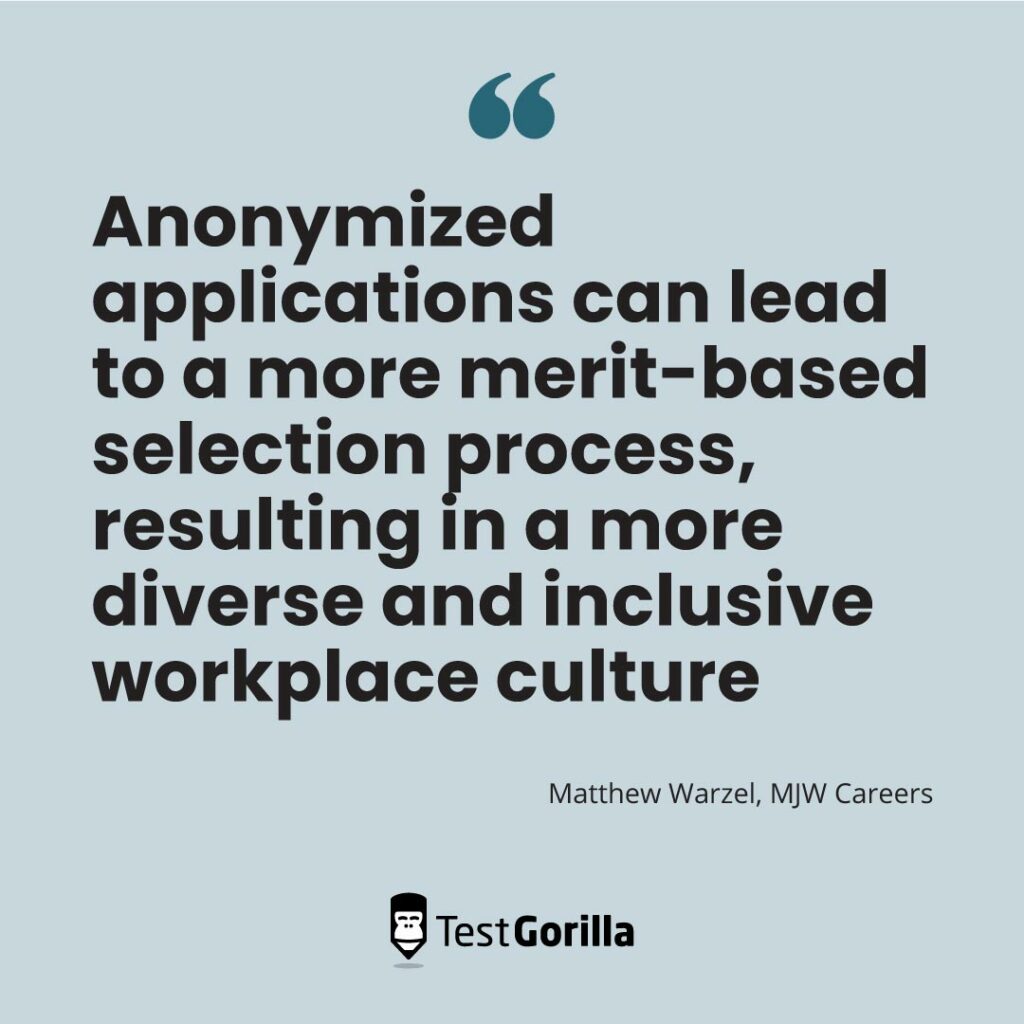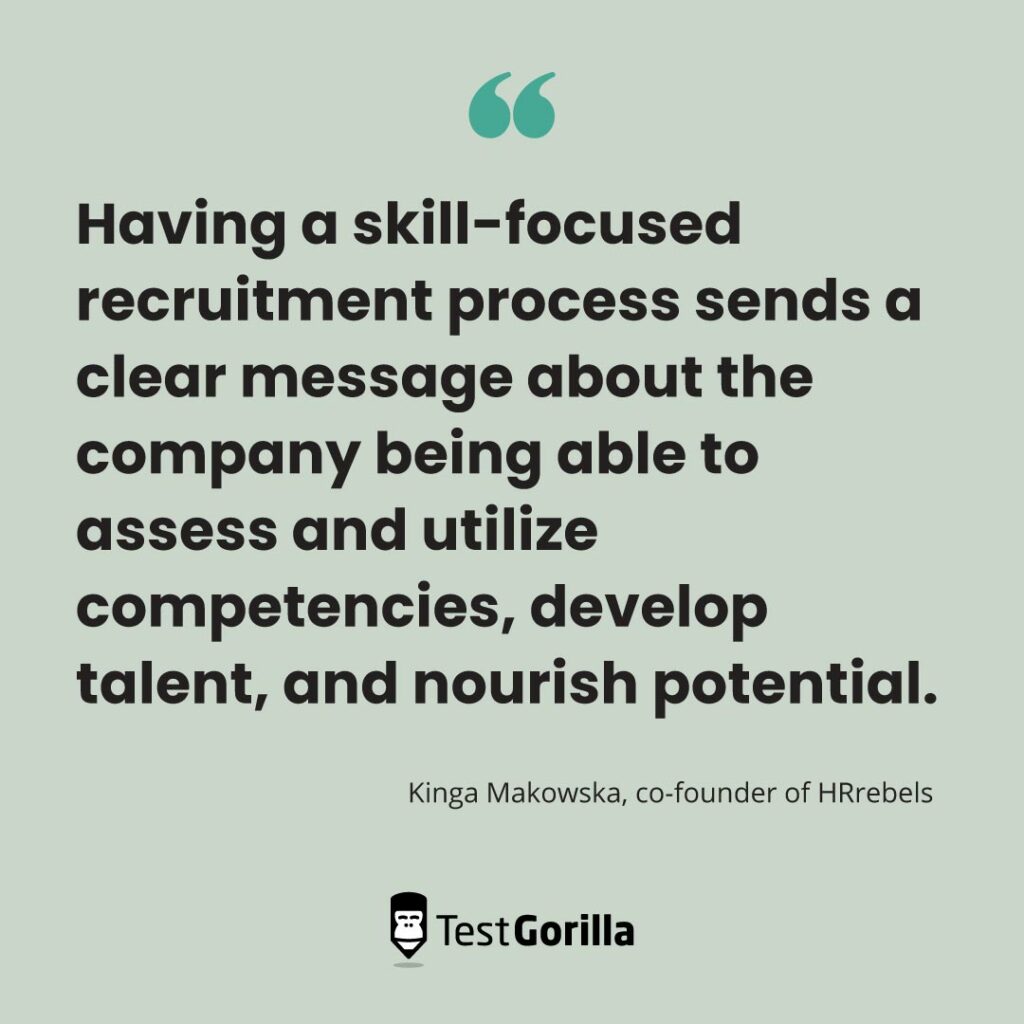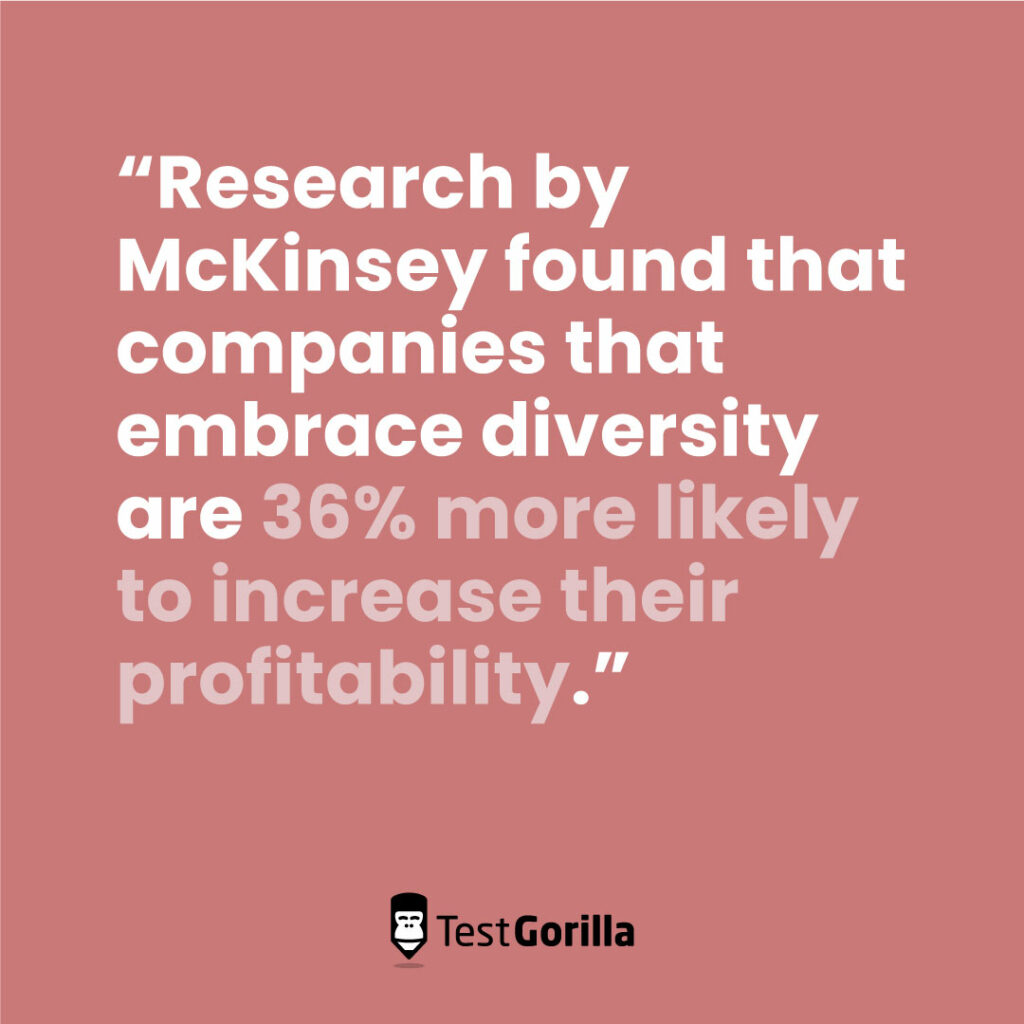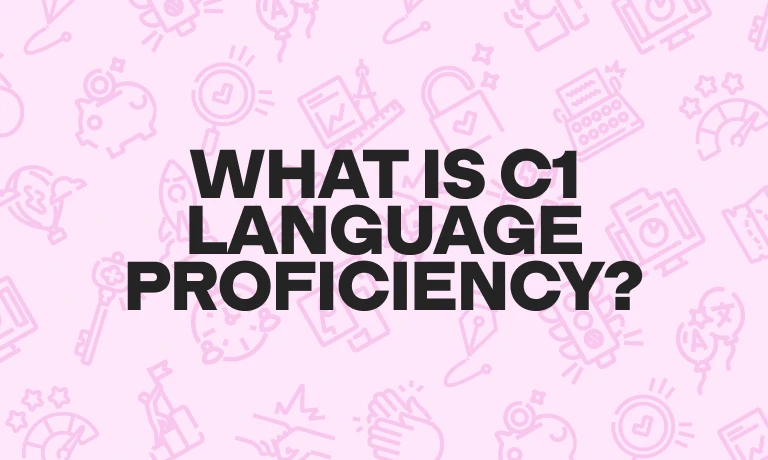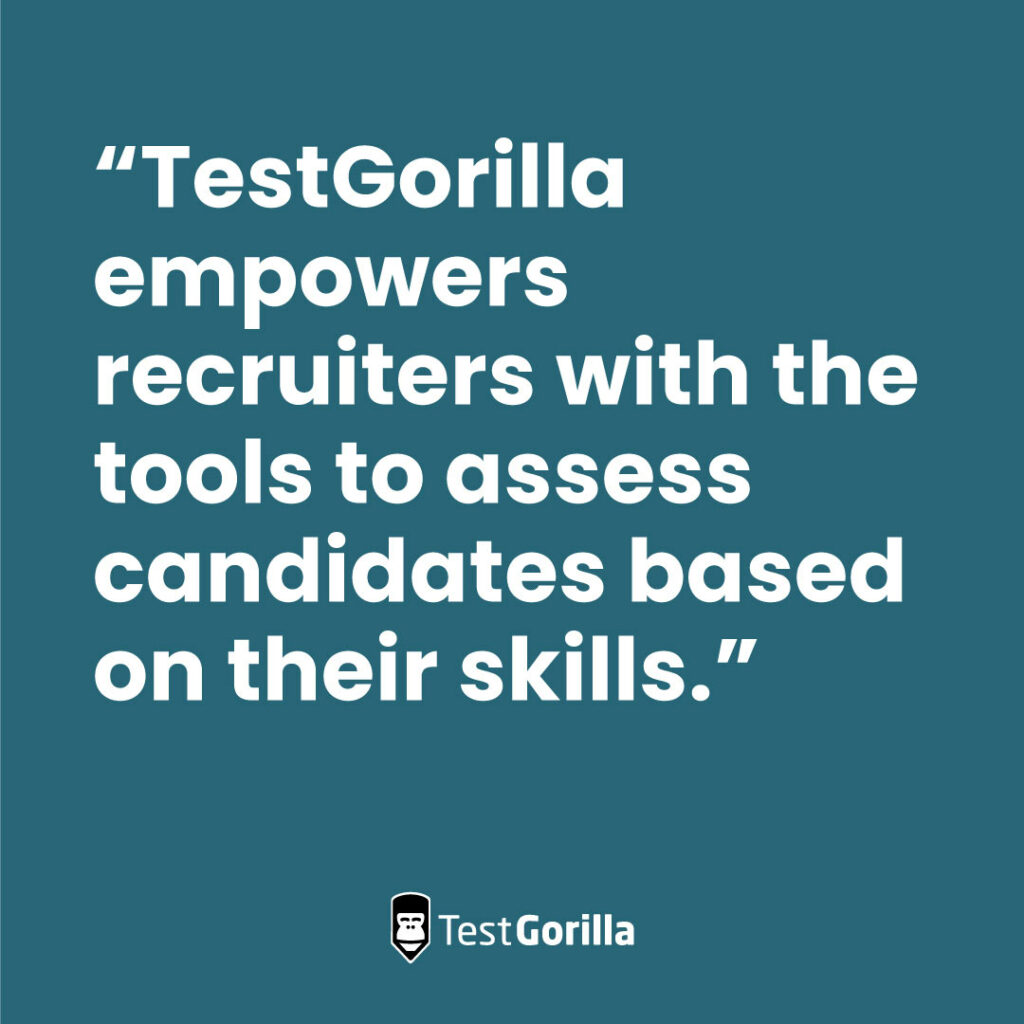The Great British Bake Off, a popular baking competition show, asks contestants to bake a standard recipe to the best of their ability. At the end, the judges try each cake without knowing which plate belongs to each contestant.
The result? The best treat wins, regardless of who made it.
Anonymized applications follow the same recipe: the skills of each candidate are judged instead of their background.
Anonymized applications have gained traction in recent years as organizations strive to create fairer hiring practices and reduce bias in recruitment processes.
But what exactly do HR experts think of anonymized applications? Let’s explore some of the key benefits and considerations from four industry professionals who use anonymized applications for recruitment.
Table of contents
Anonymized applications shift the focus to skills over background
Anonymized applications are changing the recruitment landscape by shifting the focus to what a candidate brings to a position.
Matthew Warzel from MJW Careers says anonymized applications prioritize the qualifications and skills of candidates rather than superficial characteristics, like specific degrees or previous employers. “This can lead to a more merit-based selection process, resulting in a more diverse and inclusive workplace culture,” he says.
Anonymizing applications means that recruiters judge applicants by their skills and relevant experience without being distracted by background information. This skills-based approach helps recruiters find the best candidates for a job.
When recruiters aim to match candidates’ skills with the required skills for a role, it creates a recruitment process that is intended to find the best match for the company’s needs. Hiring the best people for the job based on skills leads to crafting teams with higher productivity and quality output in the long run, which ultimately benefits the business.
Kinga Makowska, co-founder of HRrebels, adds, “Having a skill-focused recruitment process sends a clear message about the company being able to assess and utilize competencies, develop talent, and nourish potential.”
Anonymity removes the risk of unconscious bias
Identifying information like name, gender, and age in applications causes recruiters to unintentionally make biased decisions.
For example, one study found that despite identical resumes, ethnic minorities receveived 45% fewer favourable responses in job application for non-leadership positions, and 57% less offers for leadership positions.
This doesn’t mean that the recruiters in the survey were intentionally biased; unconscious bias often influences hiring decisions. If a recruiter sees that a candidate is from the same culture as them, they may show a preference for that person, even if another applicant has a similar, or even better, skillset.
Removing some information, like the candidate’s name or graduation year, from the application provides fewer clues to characteristics like gender, age, and ethnicity.
As Kinga explains, using anonymized applications gives “a fair chance to applicants who could otherwise be overlooked due to the unconscious bias of applicant tracking systems, recruiters, or hiring managers.”
Through anonymized applications, candidates also have more opportunities to advance and be successful in their roles. For example, a study by HBR found that women’s success rate rose from 18% to 30% when applications were fully anonymized.
Selecting candidates based on skills removes the risk of unconscious bias and strengthens the organization’s overall quality of hires.
The best insights on HR and recruitment, delivered to your inbox.
Biweekly updates. No spam. Unsubscribe any time.
Anonymized hiring improves workplace diversity
Anonymized applications lead to a more diverse and inclusive workplace. Thanks to anonymous applications creating a higher focus on skill, over background. In fact, our study showed that 97.5% of companies that implement skills-based hiring practices increase diversity in their workplace.
Organizations with diverse hiring practices gain access to talented candidates who may have been overlooked in traditional recruitment processes. In fact, Coventry City Council experienced an increase of 117% in Black, Asian, and Minority Ethnic (BAME) applicants when they introduced anonymous applications.
This is because anonymized applications remove the importance or stigma of candidates’ backgrounds. This means that any candidate, regardless of their location, education, age, race, and gender, can be judged and considered on fair terms.
The benefits of creating an inclusive and diverse workplace spread into a company culture that supports and embraces innovation. As Matthew explains, anonymous applications have the ability to positively affect a workplace because they “promote a more inclusive and diverse work environment. When the hiring process is based solely on an individual’s skills, it can lead to a workforce that is more representative of society as a whole.”
This promotion of a diversity and skills-based recruiting mindset has a positive impact on workplace culture and innovation. Matthew credits the success of diverse teams to anonymized applications because they “create a culture where all employees feel valued and respected, regardless of their background or personal characteristics. This can lead to a more positive and supportive work environment, where individuals are able to fully express themselves and contribute to the success of the organization.”
Not only do anonymous applications improve workplace culture, but the diversity in recruitment also allows for better financial performance. Research by McKinsey found that companies that embrace diversity are 36% more likely to increase their profitability. Kinga adds that “by introducing diversity, workplace culture becomes open and innovation-focused. Encouraging broader perspectives in decision-making is the catalyst for agility and remaining competitive in the market.”
Anonymized applications are just one part of a more inclusive hiring process
To achieve true fairness in the workplace, a company needs to introduce practices that remove bias and focus on skills throughout its entire HR ecosystem and company culture.
Nick Civitarese, recruiting director for StaffGrabbers, puts it simply: “Anonymized applications are only useful at the ‘top of funnel’ recruiting process, where most people probably aren’t even aware it’s being done. But if the initiative is broadcasted throughout the organization as an active step the company is taking to diversify the recruiting process, it can send a strong signal to everyone that this is being taken seriously.”
Here are a few things HR experts advise that you keep in mind when considering recruiting through anonymized applications.
Create an inclusive job description
From the very start, an inclusive job description will encourage applicants from different backgrounds to apply.
Matthew says, “Ensure that job descriptions and requirements are written in an inclusive manner, avoid gendered or biased language, and focus on the skills and qualifications needed for the job. This can help attract a more diverse pool of candidates and ensure that all candidates are evaluated on an equal basis.”
By creating inclusive job descriptions, you make sure that all applicants feel included and welcome to apply. You eliminate potential candidates feeling excluded and instead focus on the skills that would lead a candidate to succeed in the role.
Once a pool of diverse candidates is established, ensure that the recruitment process itself is fair and inclusive. This includes implementing processes to eliminate bias in decisions, such as incorporating skills-based assessments as part of your screening process.
Monitor interview practices
Untrained recruiters can unconsciously evaluate candidates with bias during interviews, which affects their ability to make fair decisions.
Kinga highlights the importance of monitoring interview panels. She says, “Bias is usually unrecognized, and in authority-based company cultures, it may be perceived as a useful tool for differentiating good culture fit from a bad one. We need to know and share how we are going to address the culture fit by means that are not potentially discriminatory.”
When recruiters aren’t trained to identify their bias during interviews, it makes their decisions prone to stereotypes or biases. A lot of the time, these unconscious biases are justified as candidates not fitting the “culture” of a company.
Another way to ensure fairness and objectivity in the selection process is to consider implementing diversity panels for interviews.
Matthew says they “prevent hiring decisions from being made by a single person with their own biases and preferences. A diverse panel can provide different perspectives and help to ensure that decisions are made based on qualifications and skills rather than personal biases.”
Establish continuous recruitment audits
Matthew suggests that hiring teams “conduct regular audits of their hiring practices to identify any patterns of bias or discrimination and take steps to address them. This can help ensure that the hiring process is fair for everyone.” It will also help your hiring team to identify and reduce bias in your hiring practices.
To identify any areas of bias, regularly audit recruitment practices and procedures to ensure that policies that focus on a fair hiring process, with an emphasis on diversity and inclusion, are in place.
For example, you could send out a survey to hiring managers asking them about their recruitment practices, or you could hold a focus group to review reasons for declined applications.
Taking the time to develop an equitable recruitment process is essential in order to attract, select, and retain high-quality talent that reflects the diversity of the community.
Anonymized applications remove unconscious biases and improve the diversity and quality of your candidate pool. However, in order to ensure true workplace diversity, you must also build inclusive HR practices throughout the recruitment journey and throughout your entire organization.
TestGorilla supports recruiters with skills assessments
TestGorilla empowers recruiters with the tools to assess candidates based on their skills. It equips HR to take a skills-based approach to finding qualified applicants while avoiding inherent bias.
The skills assessment process is fair and allows recruiters to review results quickly and identify the best candidates for their team. With TestGorilla, companies can ensure a fair hiring process by focusing on skills rather than backgrounds or personal information.
If you’re interested in creating an easier, fairer, and faster recruitment process, take a look at how TestGorilla can help.
You've scrolled this far
Why not try TestGorilla for free, and see what happens when you put skills first.


